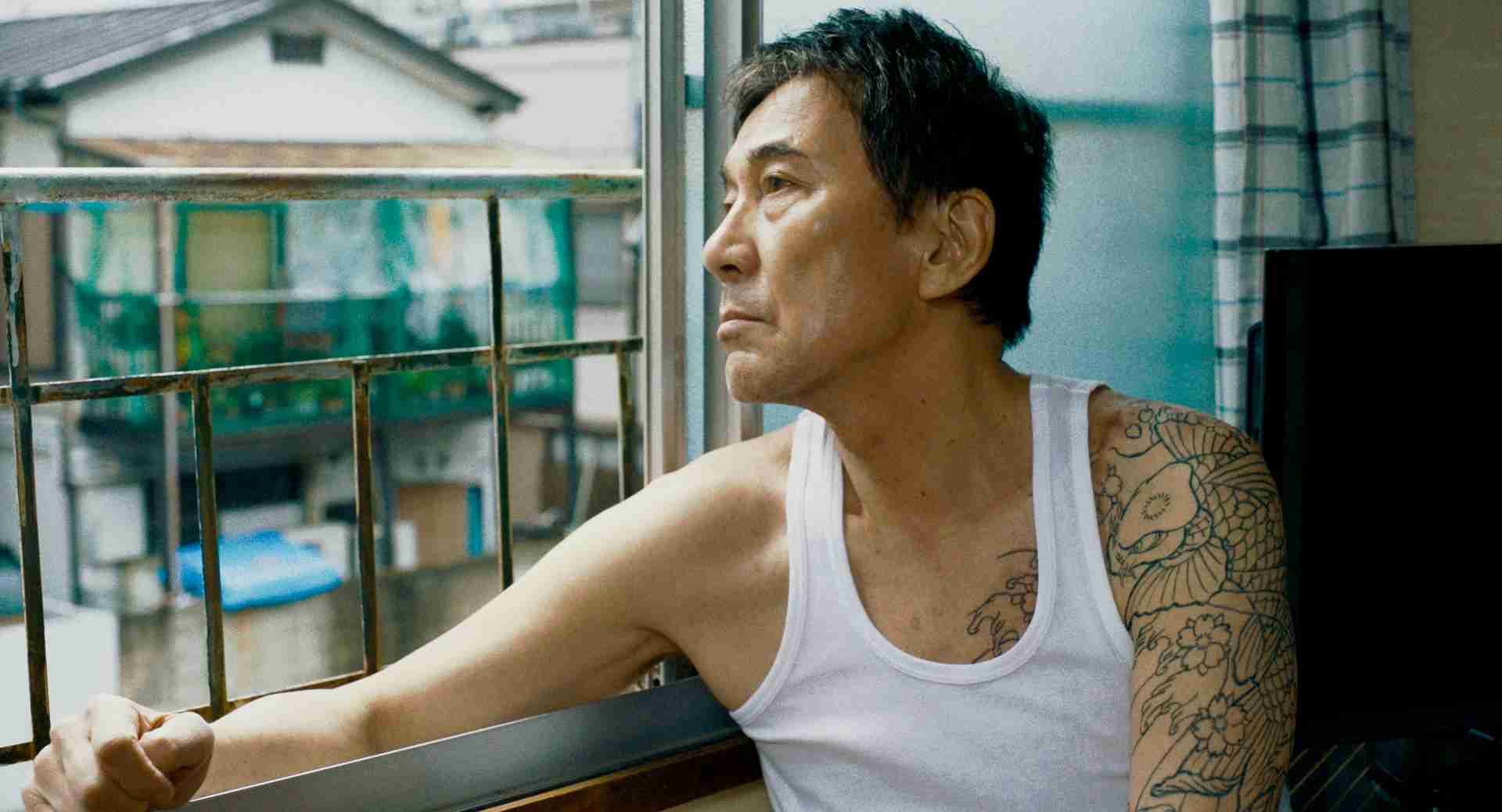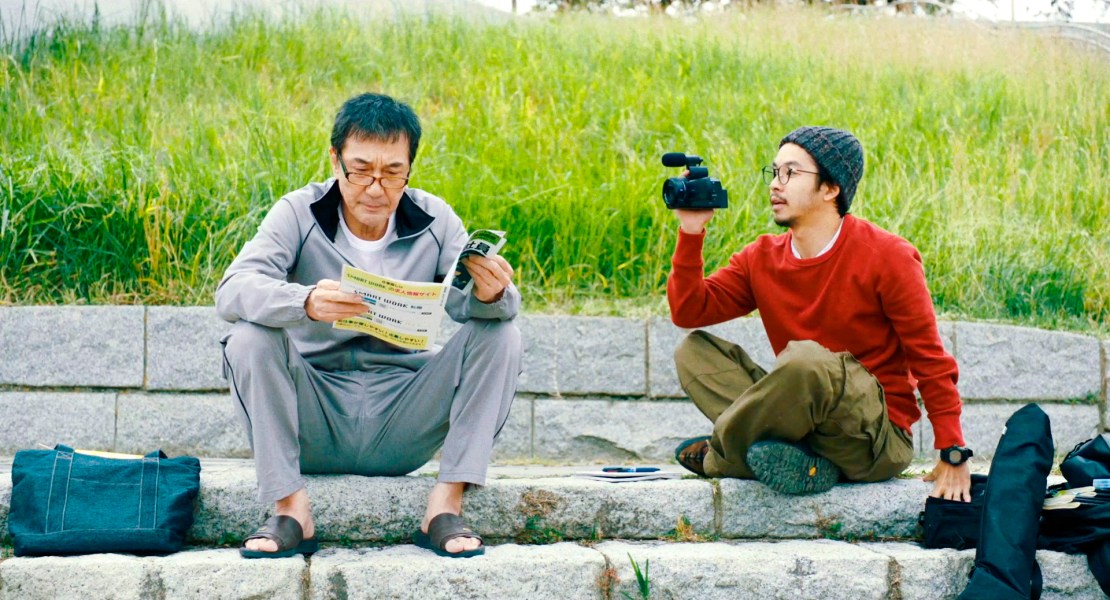
In different hands, Miwa Nishikawa’s Under the Open Sky would have been a very different movie. Focused on a former yakuza driver being released from prison a decade after killing someone in a sword fight, one might expect a slick action thriller. But Nishikawa isn’t interested in stylized duels or heart-pumping car chases. Rather, she’s telling a much more measured story that explores how humanity attempts to thrive even under the most trying of circumstances, and in doing so made one of my favorite films of the year.
We meet Mikami (Kōji Yakusho) as he’s being released from a thirteen-year stint in prison, and although he wants to avoid returning to life in organized crime he’s got no family, an ailing heart, and he can’t even drive anymore as his license lapsed while he was in prison. His only lifelines are Tsutomu and Atsuko Shōji (Meiko Kaji and Isao Hashizume), a well-off couple who sponsor recently released prisoners. Forced to go on welfare and find a tiny, rundown apartment, Mikami navigates the roadblocks to reintegrating into society combined with his own self-sabotage brought on by his brash, ill-tempered behavior.
Kōji Yakusho is simply amazing as Mikami as he brilliantly conveys the contradictions that dwell within all of us. He’s imposing yet frail, headstrong yet cripplingly insecure, and he wants to reintegrate with society but is utterly disillusioned with people. Having been abandoned by his mother as a child and forced to fend for himself for most of his life, he hates to see people treated poorly and his need to intervene is borderline compulsive. The only way he knows how to do that is through violence, and although the years have taken their toll, he’s still quite good at hurting people when he wants. More and more we see that as a hindrance, as Mikami can’t find any other means to stand up to the injustices of the world and it often does more harm than good.

As tough a time as Mikami has acclimating to life outside of prison, he manages to connect to people from time to time, from his welfare caseworker to the manager of his local grocer. Even though we see these characters through Mikami’s point of view, we also learn enough about them to see how they carry their own baggage into the relationship. The most striking instance of these complex relationships is Tsunoda (Taiga Nakano), a young TV director who Mikami hopes will tell his story while also helping him find his mother. At first Tsunoda seems willing to exploit Mikami for his own ends, but he has his own arc that, as it intertwines with Mikami’s, pushes their relationship into something unexpectedly genuine.
There’s a scene where the two spend some time together in a bathhouse, and in a moment of pure affection, Tsunoda offers to wash Mikami’s back. It’s beautifully crafted and indicative of Nishikawa’s style as a director. It’s not grand and overly saccharine, but rather a restrained moment where vulnerability meets compassion. Nishikawa has such a steady hand behind the camera. She’s extremely deliberate and calculated in her approach without losing the emotion that flows through the story.
She’s also not afraid to acknowledge the harsher realities of life, as much of Mikami’s story plays out in “one step forward, two steps back” fashion. As badly as we want him to find some kind of peace, we’re continually reminded of how society has already determined his fate. Through a conversation with a potential producer for Mikami’s television spot, she admits that people are so unforgiving of those like Mikami who “stray from the path,” because ultimately they’re all unhappy to some degree with the way they need to behave in life but remain quiet out of fear. So we take it out on people like Mikami, and we see that play out over the course of the film. It’s heartbreaking to watch Mikami whittled down both physically and mentally as he tries to fundamentally change who he is as a person just to assimilate to a community that by and large won’t ever accept him.
Under the Open Sky doesn’t offer any grand resolutions to the problems we face as human beings. Our communities, our friends, and even our bodies often let us down. We can be incredibly selfish and unforgiving of other people, especially those most in need of compassion and support. But the film also reminds us that sometimes the closest thing we have to a happy ending is knowing there are moments, no matter how small, where we can truly be who we are with another person and realize they fully accept us, flaws and all.





